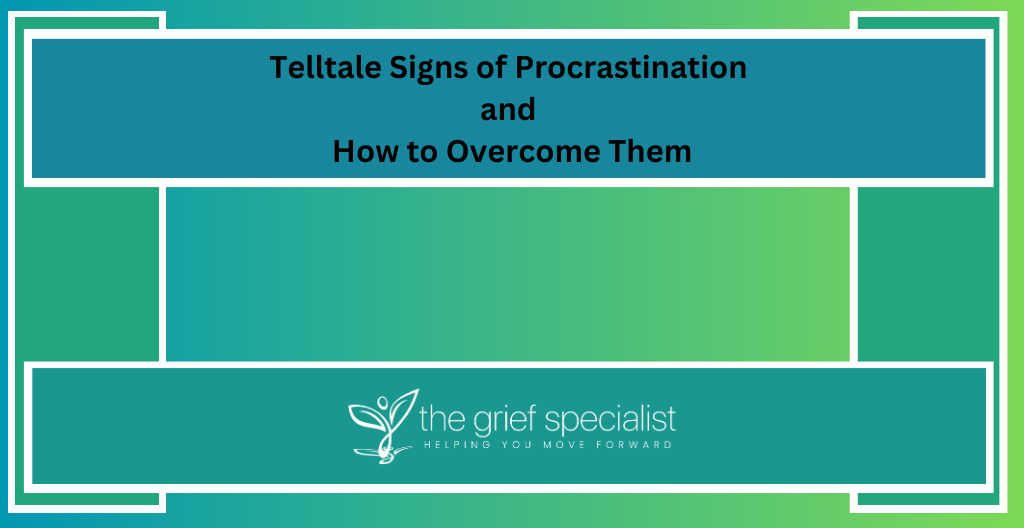Are you putting off finishing a project at work, avoiding homework assignments, ignoring household chores, or not committing to a time to meet-up with a friend? You could be procrastinating.
Procrastination is the act of delaying or putting off tasks until the last minute – or even completing them after their deadline. It tends to reflect a person’s struggles with self-control.
It can have negative consequences for health, work, and relationships. Procrastination can also lead to anxiety, missed blessings, and wasted potential. Procrastination can have consequences with delinquent bills, higher levels of stress and illness. It can also cause resentment from friends, family, co-workers, and fellow students who might be picking up the slack for your lack of performance.
According to Social.com, procrastination affects a significant portion of the population.
- An estimated 15 to 20% of the adult population are chronic procrastinators.
- The average person spends 55 days a year procrastinating.
- Around 80 to 95% of college students report procrastinating at some point.
- 88% of employees admit that they procrastinate for at least an hour per day.
- 25% of adults consider procrastination to be a defining personality trait for them.
- More people struggle with procrastination than suffer from alcoholism, substance abuse, and depression.
- 15.6% of people claim never to procrastinate.
One of the biggest factors contributing to procrastination is the idea that we have to feel inspired to work on the tasks at a particular moment. There is also a need that the project to be completed perfectly and without error. Other factors that cause procrastination are found below.
Depression and Anxiety
Feeling hopeless, lack of self-confidence can make it difficult to start, let alone complete a task. When people are depressed, they often lose interest in activities they normally enjoy.
Procrastination is a common sign of depression, however, not all people who procrastinate are depressed.
Grief
I advise my clients to put off major decisions or actions for 6-12 months. During this time, you are vulnerable and emotional. This is to be expected. Grief is the emotional state that knocks you off your feet. Grieving is a journey where you adapt and there is a point where the pain eases and you will be able to make informed and critical decisions hence taking on and completing projects.
Present Bias
When the thought of simply starting a project is overwhelming you find it easier to ignore it and put it off. The immediate gratification that comes from continuing to do what they are doing is much greater than the long-term reward of taking action.
For example, staying in bed, sleeping an extra 30 minutes is more gratifying than the long-term reward of exercising, sleeping better and eliminating pain.
Self-Deception
Procrastinators are aware their actions are creating consequences but changing their habits requires greater effort than completing the task in front of them.
You underestimate the time it will take to complete a task, therefore when you realize you have insufficient time, you delay starting even further. For example, when you have a project due at work that you think will only take 3 hours, you realize it will take 8.
Why do You Procrastinate?
- Not knowing how to do something
- Not wanting to do it
- Not caring about it
- Not feeling like it or not in the mood
- Habitually wait until the last minute
- Lack of initiative
- Delaying a necessary but unenjoyable task in favor of another, more enjoyable task
- Waiting for the right moment
- Fear of not doing it right
- Perfectionism.
How to Overcome Procrastination
You might see yourself in this blog and be wondering,” How can I stop procrastinating?”
- Set small and realistic goals for each task and reward yourself for completing them.
- Set the deadline a few days or weeks before it is due.
- Adapt a can-do attitude and believe in yourself.
- Break down large or complex projects into smaller and manageable chunks.
- Make a to-do list.
- Start with the most important or difficult task first when you have more energy and motivation.
- Eliminate or minimize distractions that might tempt you to procrastinate, such as social media, email, or TV.
- Forgive yourself for past procrastination and focus on the present and future actions.
- Give yourself credit when completing a project. We tend to delete our successes.
- Learn how to complete a project by asking questions and studying it.
- Let go of that your project has to be perfect. Give it your best effort.
- When fear is stopping you, jump in and do the project even when afraid.
- Work with an accountability partner.
#wehelpyoumoveforward
#procrastination
#dothework
#timemanagement
#procrastinator
#habits
#distracted
#procrastination
#dothework
#timemanagement
#procrastinator
#habits
#distracted




